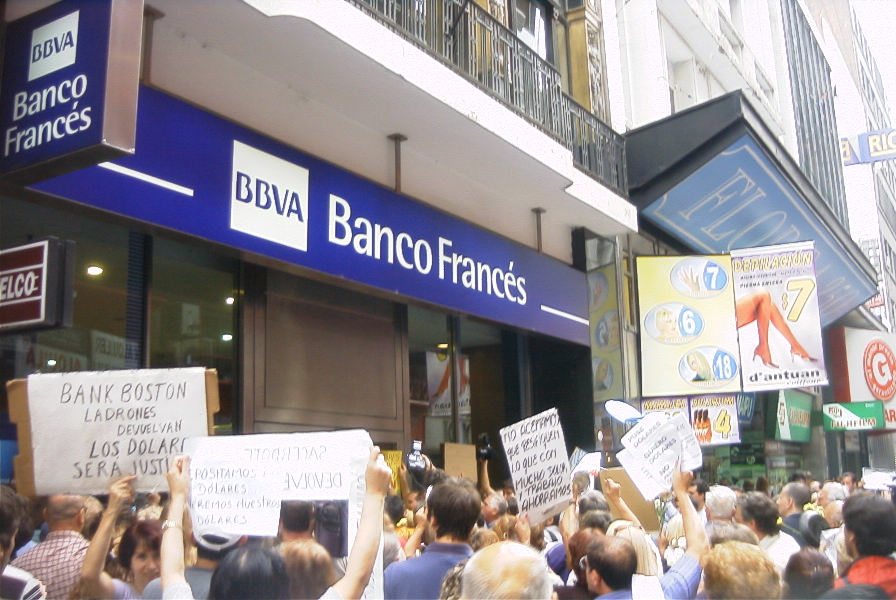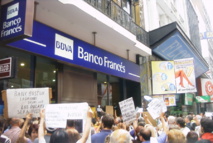As a result of yesterday's trading, rate of the Argentine peso fell against the dollar by 26.5%, to 13.38 per $ 1. Analysts had expected such a scenario after the country's new president Mauricio Macri and his government reported the abolition of restrictions on foreign exchange transactions, operating since 2011.
In November, the opposition candidate Mauricio Macri won the presidential election over Daniel Scioli of the ruling bloc. Results of the presidential elections in Argentina showed that the citizens are tired of the confrontational style of government couple Kirchner. Nestor Kirchner, who came to power in 2003, ruled the country until 2007. His wife, Cristina Fernandez de Kirchner, replaced him, and was ruling the country until December 10. Experts point out that during Kirchner couple’s stay in power, Argentina has achieved considerable success in the fight against social problems. According to independent sources, number of those living below the poverty line decreased by 70%, and those who live in extreme poverty - 80%. Nevertheless, because of the rigid exchange rate, illicit market is thriving, fiscal discipline is absent, social costs are rising. Inflation topped 20%. Liberalization of the economy, along with avoiding authoritarian economic methods and amending juggling statistics (for what the former government of Argentina was often criticized) has become one of the main points of the new presidential programme.
Not only analysts, but also participants of the stock market were not surprised by the peso’s depreciation. Stock indexes in Argentina and the largest neighboring countries reacted to the Argentine peso’s dynamics rather calmly - Argentine Merval stock index fell by 0.8%, Brazilian Bovespa rose 0.6%, Chile's IPSA rose 1.2%. Experts point out that everything is within the expected from the market point of view. "This is a very positive start, which should weaken potential risks and build confidence among investors - said senior analyst of investment EMSO Asset Management Patrick Esteruelas, interviewed by Bloomberg.- In the medium term, investors will watch closely how significant would be inflationary and sociopolitical effect of the initiated reforms, and how it will affect the government's ability to continue this course."
source: bloomberg.com
In November, the opposition candidate Mauricio Macri won the presidential election over Daniel Scioli of the ruling bloc. Results of the presidential elections in Argentina showed that the citizens are tired of the confrontational style of government couple Kirchner. Nestor Kirchner, who came to power in 2003, ruled the country until 2007. His wife, Cristina Fernandez de Kirchner, replaced him, and was ruling the country until December 10. Experts point out that during Kirchner couple’s stay in power, Argentina has achieved considerable success in the fight against social problems. According to independent sources, number of those living below the poverty line decreased by 70%, and those who live in extreme poverty - 80%. Nevertheless, because of the rigid exchange rate, illicit market is thriving, fiscal discipline is absent, social costs are rising. Inflation topped 20%. Liberalization of the economy, along with avoiding authoritarian economic methods and amending juggling statistics (for what the former government of Argentina was often criticized) has become one of the main points of the new presidential programme.
Not only analysts, but also participants of the stock market were not surprised by the peso’s depreciation. Stock indexes in Argentina and the largest neighboring countries reacted to the Argentine peso’s dynamics rather calmly - Argentine Merval stock index fell by 0.8%, Brazilian Bovespa rose 0.6%, Chile's IPSA rose 1.2%. Experts point out that everything is within the expected from the market point of view. "This is a very positive start, which should weaken potential risks and build confidence among investors - said senior analyst of investment EMSO Asset Management Patrick Esteruelas, interviewed by Bloomberg.- In the medium term, investors will watch closely how significant would be inflationary and sociopolitical effect of the initiated reforms, and how it will affect the government's ability to continue this course."
source: bloomberg.com



















